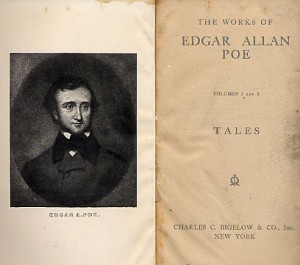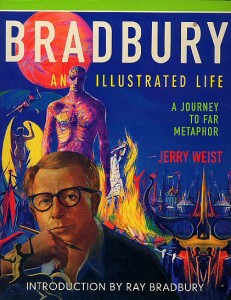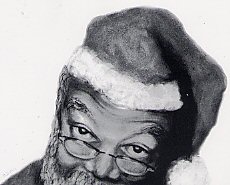Listen to Jim:
http://redclaydiary.com/mp3/illneverforgetthedayireadabook.mp3
or read on…
So…what is the first book you ever read?
What is the first book I ever read?
Allow me to crank up the Time Machine and get back to those thrilling days of yesteryear, when books slowly insinuated themselves into my life.
First thing I do is SEE a book. It’s over there, just within reach of my chubby little uncoordinated fingers. I can roll just a quarter-roll in my crib—that’s all it takes to see this unfocused blur of colors and shapes on the cover. All I know how to do is experience the book, not knowing that it can be read and manipulated. So, I do what I know how to do: lick the cover and gnaw at the corners. It tastes different than those mashed-up things they are feeding me. It would be even tastier if I could bite off a piece and swallow it, but that comes later.
So, first I SEE a book. Then I TASTE it. Then I masticate a bit. Then, I lose concentration and fixate on a wiggly toy that is hanging above me. I’ll get back to the book later.
Next thing I know, I’m snuggled up to my mother’s chest, experiencing the words she is reading to me as they vibrate the side of my face. I can HEAR her voice with one ear. I can FEEL her voice with the other. And then I note that she is gently turning the pages, causing the colorful shapes and strange markings to shift each time. I can hear her inflections of warmth, suspense, happiness, as the pages drift by.
Before I know it, I’m sitting up in my own wobbly fashion and turning the pages—not necessarily one at a time, not necessarily in any order. But I am doing the book the way I know how to do it. And, now and then, I even taste it again. I’ve been known to rub a crayon onto the paper to add color and design.
Time flies and now I’m reciting a book to my mother and sister, pretending that I’m reading it as the pages pass, but actually I still don’t know how to read, I’m just feeding back what I’ve heard them read aloud so many times. They play along with the ruse.
Now, at last, I am picking out a word or two in preparation for enrolling in the first grade. I’m excited about the prospect of actually making my way through the words with some degree of understanding. And, amazingly, after a while I start to read big-lettered words on my own.
What is the first book I can read without assistance? Hard to tell, since the books at school are not the same books we have at home. I’m reading some in both places. But in class, I get to read a Dick and Jane and Sally story all the way through! When I become an author many years later, I am jealous of those who wrote this reader. Wouldn’t you like to be the writer whose works can be recited by heart by millions of school kids? “See Dick run. Run, Dick, run!”
In middle age, I discover the song that comedian Jimmy Durante co-wrote and performed with gusto:
There’s one day that I recall, though it was years ago.
All my life I will remember it, I know.
I’ll never forget the day a read a book.
It was contagious, seventy pages.
There were pictures here and there,
So it wasn’t hard to bear,
The day I read a book.
It’s a shame I don’t recall the name of the book.
It wasn’t a history. I know because it had no plot.
It wasn’t a mystery, because nobody there got shot.
The day I read a book? I can’t remember when,
But one o’ these days, I’m gonna do it again.
(Listen to Jimmy sing it, at the end of this column.)
Just yesterday, a pleasant family enters the shop, looking around and remarking upon the variety of things to read. One young girl is just tagging along, so naturally she’s the one I try to engage in conversation: “What do you like to read?” I ask, hoping to introduce some titles to her. She performs a sly smile and doesn’t answer because, like so many other children I meet these days, she knows her avid parents will answer for her. “Oh, she doesn’t read,” her father says. I know what he’s saying, but I play dumb just to see what kind of response I’ll get: “You mean she doesn’t know how to read?” I ask sympathetically. She grins even more deeply, waiting for her parent’s punchline. “No she just doesn’t like to read.”
I get it now. This lass has found a way to rebel against her parents, assert her own identity, appear cool to other kids. Normally, I get to talk up a book enough to inspire someone like her to try it, but I know there’s no way this can happen when hovering but well-meaning parents are there to puppet-master her conversation.
So, I say what I always say whenever the situation calls for it: “Oh, too bad. Mark Twain once said that a person who does not read has no advantage over one who can’t read.”
This is aimed at no-one in particular. The girl gets the joke but continues to play dumb. The parents remain perplexed.
What will no doubt happen—I’ve see it often—is she will discover a spicy novel proffered by a friend and, in secret, read it voraciously, becoming hooked on reading despite herself. She will, in the tradition of all kids, hide this novel and this fact from her parents as long as she possibly can.
The cycle goes on.
And maybe one day she’ll hear an old Jimmy Durante song and get excited all over again
Here’s Jimmy: http://www.youtube.com/watch?v=uLOR8gKwyoo
jim@jimreedbooks.com
http://www.jimreedbooks.com
Twitter and Facebook



